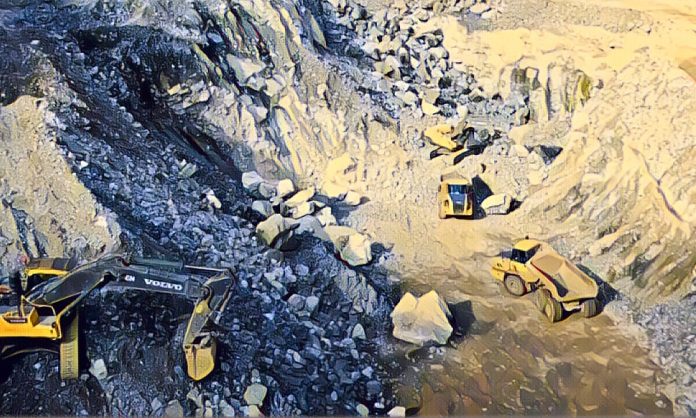Key Points
-
Nigeria lithium mining is dominated by foreign investors.
-
Local players face weak capacity and limited government support.
-
Experts urge reforms to boost lithium mining participation.
Nigeria may be sitting on one of the world’s richest lithium deposits, but when it comes to who’s cashing in, the story looks all too familiar — foreign investors are taking the lead, while local players remain on the sidelines.
Lithium, often called “white gold” for its central role in powering electric vehicles and renewable energy systems, has become a prized mineral in the global push toward cleaner energy.
The industry is now worth an estimated $92 billion annually, with Nigeria’s lithium reserves valued at over $34 billion, spread across states like Nasarawa, Kaduna, Niger, Kwara, Kogi and Ekiti.
Yet, despite this enormous potential, few Nigerian investors have any stake in the country’s lithium boom.
According to sources in the Solid Minerals Ministry, Chinese-led firms have already secured a dominant presence in the North Central region, which holds over 70 percent of the nation’s proven reserves.
Two Chinese companies — Avatar and Ganfeng — have established large-scale processing facilities in Nasarawa State.
Avatar operates a 4,000 metric tons-per-day plant, while Ganfeng’s $200 million facility, capable of handling 6,000 MT daily, is nearing completion.
Much of the mined lithium is shipped to battery manufacturers in China, India, South Korea, and Japan.
And while foreign companies are busy processing and exporting, Nigerian investors are mostly spectators — or, at best, small-scale artisanal miners.
Local Investors Lacking Capacity and Confidence
Dr. Muda Yusuf, Executive Director of the Centre for the Promotion of Private Enterprise (CPPE), believes the lack of Nigerian participation is not due to disinterest but a mix of limited capacity, high risk, and low awareness.
“It’s all about investment and strategy,” Yusuf said. “Most Nigerians don’t understand the industry well enough or have the capacity to take the kind of risks mining demands.
Government must step in with geological data, infrastructure, and policy support to reduce risk and attract domestic investors.”
Yusuf added that insecurity in mining regions worsens the problem. “There seems to be a strange coincidence between mineral-rich areas and insecurity.
Criminal elements are exploiting minerals illegally, creating chaos that scares investors,” he said.
In his view, the government must first expand production at the primary level, then gradually transition to local processing.
“From the start, you can’t tell investors they must process what they mine — that could scare them off,” he warned.
‘Don’t Let Foreigners Own 100 Percent’ — Miners’ Association
The Miners Association of Nigeria (MAN) shares Yusuf’s concerns. Its president, Dele Ayanleke, said while foreign investment is vital, Nigeria must learn from countries like China that strictly limit foreign ownership in mining.
“You can’t go to China and own 100 percent of their solid minerals,” Ayanleke said. “We shouldn’t allow foreigners to do that here either.”
He urged the government to incentivize local participation, streamline licensing processes, and address regulatory bottlenecks that discourage domestic investors.
“The federal and state governments must work together,” he said. “States should be part of the monitoring process to ensure that mining benefits local communities.”
He also called on Nigerian banks to “learn the mining business” and support it financially. “In other countries, banks fund mining ventures. Here, they avoid them because they don’t understand the industry.”
Nasarawa Leads With Mining-Friendly Policies
Nasarawa State appears to be taking the lead in building a mining-friendly environment.
Samuel Agya, Special Adviser to Governor Abdullahi Sule on Mining and Solid Minerals Development, said the state is now home to the largest lithium processing plant in Nigeria.
“Before Governor Sule came on board, lithium mining was in obscurity,” Agya said. “He used his industry experience to attract major investors like Avatar and Ganfeng.
These companies are now processing lithium into finished products right here in Nasarawa.”
Agya added that the state government continues to advocate for the decentralization of the solid minerals sector, so states can regulate and sanitize mining operations more effectively.
Federal Government Still Playing Catch-Up
In contrast, the federal government admits it has no special policy for lithium.
A senior official in the Solid Minerals Ministry, who requested anonymity, told Vanguard that “lithium is treated like any other mineral,” with no targeted incentives or strategic framework.
That lack of focus, many argue, is what keeps Nigeria from turning its natural wealth into industrial power.
A Missed Opportunity Waiting to Happen
It’s hard not to see the irony here. Nigeria, rich in lithium — the mineral driving the global clean energy revolution — is watching from the sidelines as foreign firms dig, process, and profit.
If the government doesn’t craft deliberate policies, invest in local capacity, and protect national interests, Nigeria risks repeating the oil-era mistake — exporting raw materials while importing finished products at a premium.
The lithium boom could be Nigeria’s ticket to a diversified economy, but only if Nigerians are allowed — and equipped — to take the wheel.



